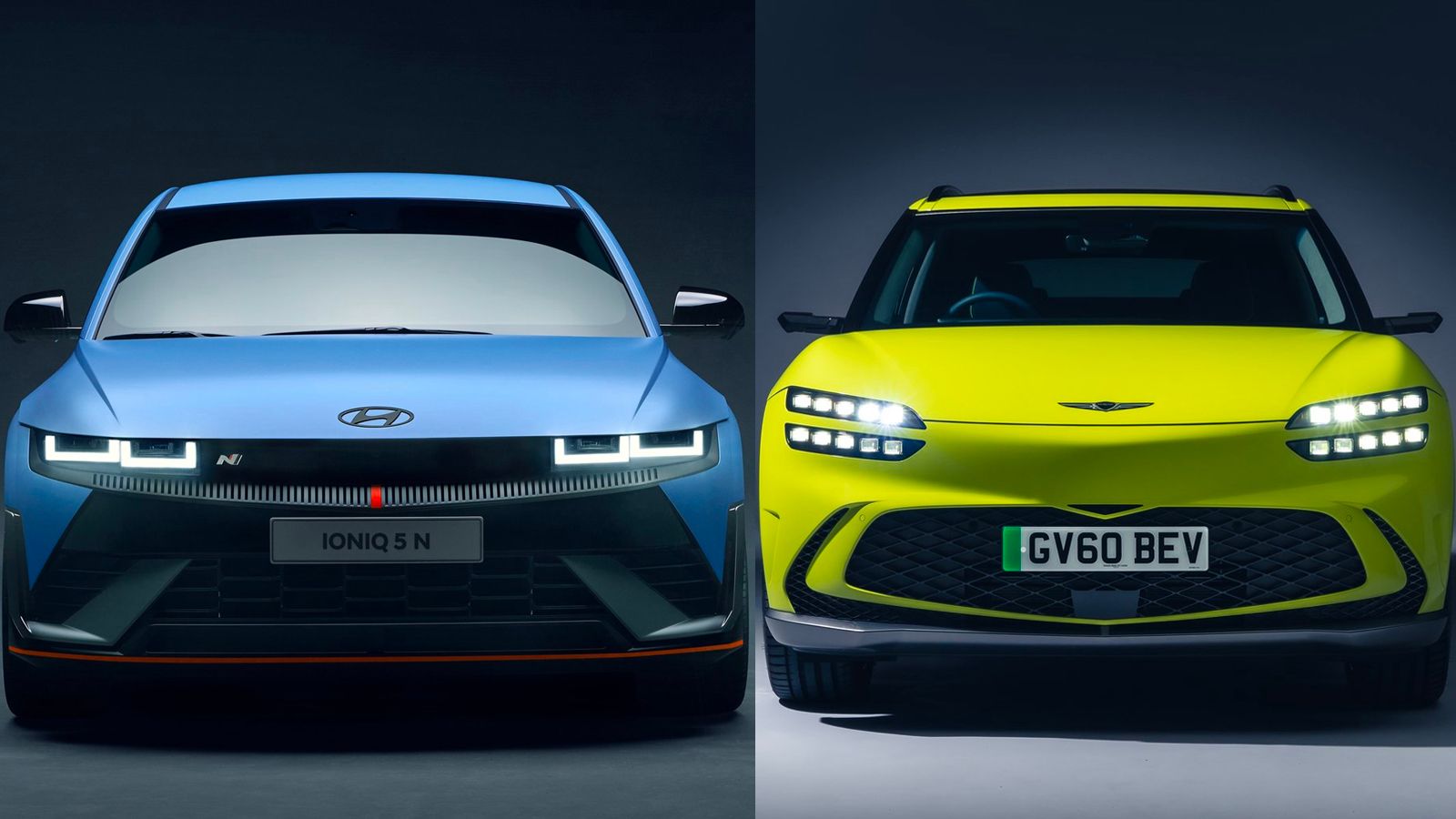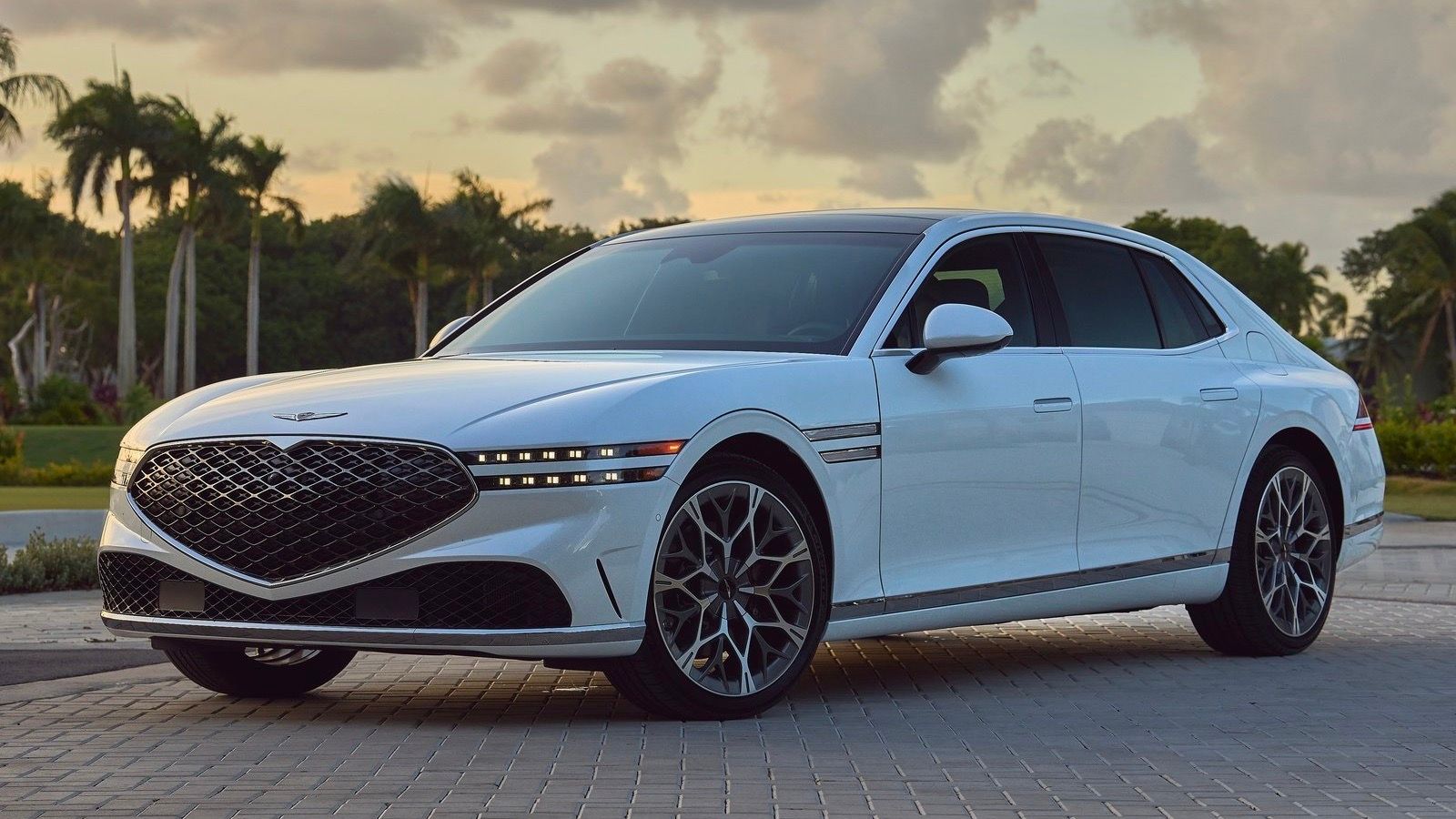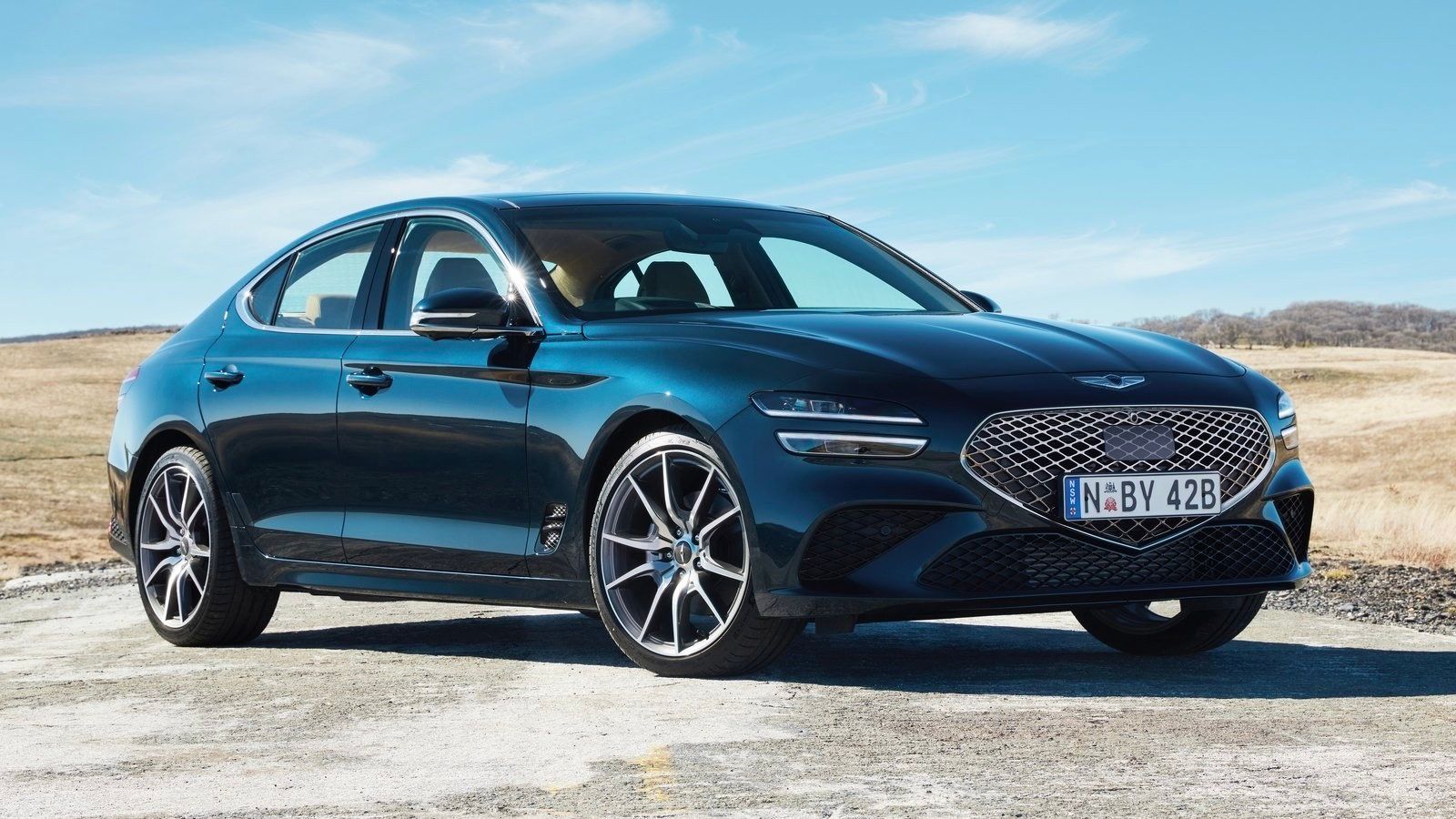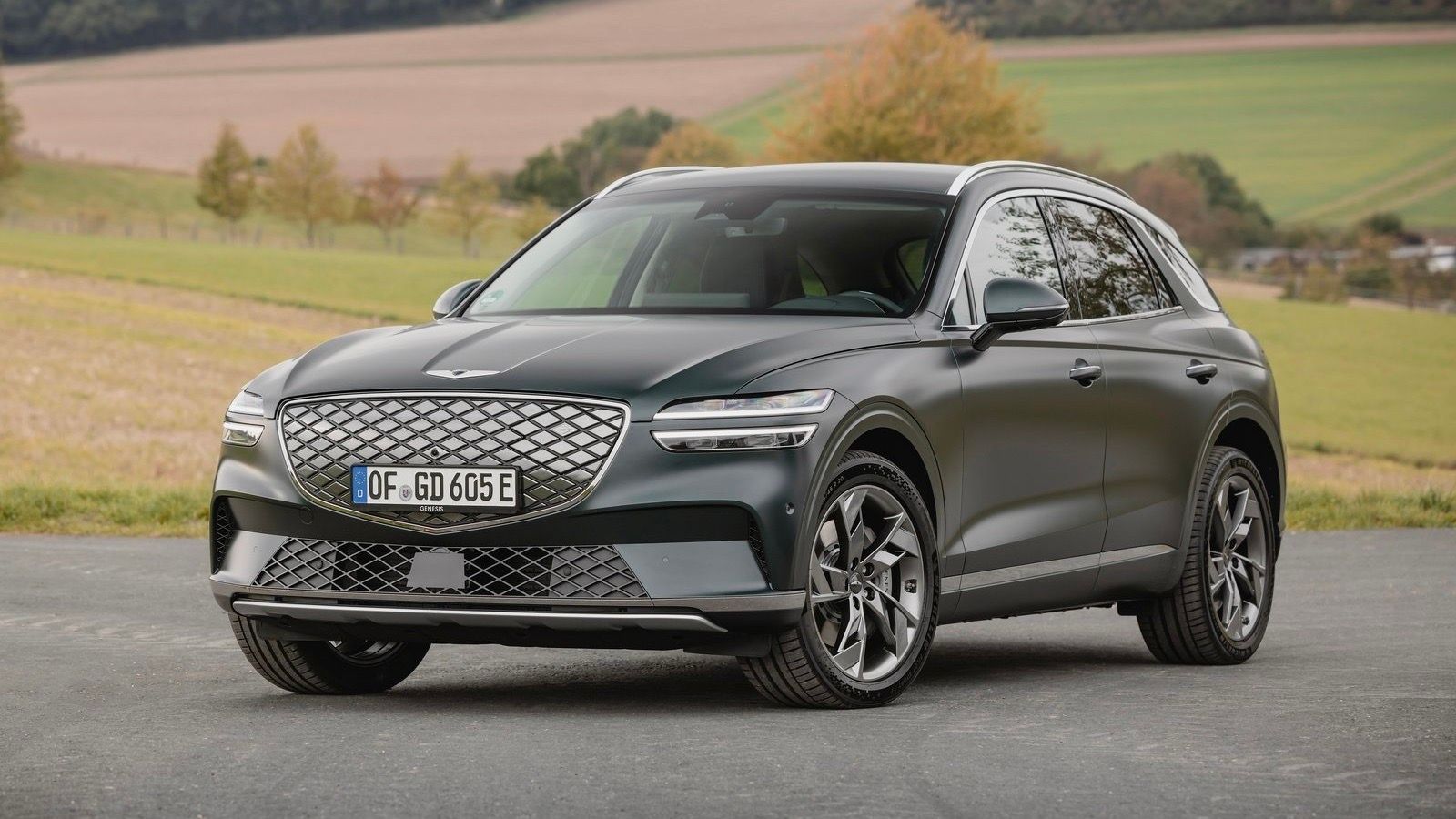Summary
- Genesis has evolved from being a model within Hyundai to a luxury brand, offering world-class interiors and competing with German luxury cars.
- Hyundai focuses on mainstream and performance with its "N" badged models, while Genesis focuses on luxury and creating a more isolating interior space.
- Hyundai creates bold and expressive exteriors, while Genesis has a more reserved and elegant design. Both brands offer exciting and fresh vehicles at compelling prices.
It wasn’t long ago that Genesis was merely a model designation within the Hyundai brand. Genesis was the one you wanted if you were interested in Hyundai’s flagship vehicles. In some ways that idea still remains, but Genesis has evolved, to say the least. Early on, the Hyundai Genesis ethos was split between a coupe and a sedan.
The coupe was an Infiniti G37 fighter with a rear-wheel-drive, optional manual transmission, and an optional throaty 3.8-liter V-6. The Genesis sedan used that same 3.8 liter but also had an optional V-8 version known as the “Tau” V-8. This car was a 5-Series fighter, from the humble Korean Hyundai, a car company that was very rarely taken seriously.
Well, the tables have surely turned. While certain manufacturers struggle to cling to their identity in the wake of a car culture that craves newness, while having an attention span of 10 minutes, it’s proven a difficult task for some automakers to remain relevant while not completely throwing away their heritage. Lucky for Hyundai/Genesis, this is the generation of drivers that will solidify their image, so for the time being they can do whatever they want.
This means they can adapt to the ebb and flow of car culture as they wish with little fear of overly harsh backlash. The thing is though, there are different drivers who crave different experiences. Luckily Hyundai motor group can deliver vastly different vehicles to cater to nearly everybody under different brands. Here’s how Hyundai and Genesis differ as separate entities but operate together.
Same, Same, But Different
Genesis was initially a testbed for Hyundai in both the luxury and performance aspects. The Genesis models were cozier than the other Hyundai offerings. They were sportier, with better powertrains too. Suddenly Hyundai was in the eyes of real drivers, and those who preferred the finer things. This was a genius move on Hyundai’s part because now they know where the market sits. Currently, Genesis is pure luxury.
Sit in a G90 and tell us that’s not a world-class interior because it absolutely is. It’s an award-winning car that takes throws the status quo by the wayside, creates its own, and still wins the hearts of previous German-only drivers. On the flip side, Hyundai has taken to performance with its “N” badged models. Elantra N undercut many performance sedans in its segment while performing as well, if not better than the competition. Veloster N was something all its own and won numerous awards including “Car of The Year” for some.
What’s On The Inside Counts
Not having a well-established legacy like some of the German marques allows Hyundai and Genesis some freedom. Ultimately it is this freedom of preconceived expectations that we now see both executing immensely different designs from one generation to the next. It’s an unexpected phenomenon, but has become a welcomed aspect of both brands. Knowing they have no ties to previous designs brings a sense of anticipation for the generation of vehicles to come.
This is especially true of exterior design, but that philosophy trickles to the interior as well. Genesis has created legitimate world-class interior experiences at a fraction of the price of some heavy-hitting competitors. If you’re looking for a stand-out supple interior, Genesis is your brand. As the world continues to become more hectic, and passengers prefer a more isolating interior space in their vehicles, Genesis is responding by making the luxury more available to more drivers.
Ways Genesis executes quality interiors:
- Flowing organic shapes
- Heavy use of soft-touch materials
- Rich color leathers
- Well-integrated tech
- Shiny polished aluminum and other metallic surfaces
- Wood grain panels
- Premium comfort features
- Solid sound insulation
What’s On The Outside Counts, Too
It’s no secret Hyundai wants to “wow” the world with its new designs. Because of its ability to quickly adapt, Hyundai can redesign models to follow automotive trends that enthusiasts can genuinely gravitate towards. On the other side of the coin, it can create a totally new take on nearly any segment and lately, the response has been overwhelmingly positive.
Focusing less on interiors, as Genesis has that covered, Hyundai is free to create extremely expressive exteriors that evoke an emotional response. The thing is, they do! Where Genesis is reserved and elegant in its exteriors, Hyundai has been bold and daring. The boldness is paying off as Hyundai designs have been of the most exciting to see revealed lately, just look at the buzz the new Santa Fe is creating, words we thought we'd never say.
Hyundai's exteriors exhibit the following elements:
- Sleek overall proportions
- Sharp lines with deep surface changes showing intent
- Edgy overall design, resonating with a younger crowd
- Retro design cues bring a level of drama and reminiscence
- Current popular automotive trends
The Value Of A Dollar
Hyundai/Genesis seem to know the value of a dollar. Their price points reflect that. So too, do their drivers. Through well-thought-out design and materials, they are able to cater to a massive chunk of the market that demands exciting, fresh vehicles, with a premium feel, but at a much more compelling price. Let’s be honest, none of us would want to pay more if we didn’t need to.
The sacrifices Hyundai/Genesis have made in building premium-looking products, but with less complex powertrains or chassis underneath come at very little cost to their demographic. Platform sharing is very present throughout both companies' portfolios, but executing a different experience between brands is a Hyundai/Genesis strong suit. Their powertrains may not be the most competitive, or special to experience, but the average Hyundai/Genesis driver doesn’t need more than adequate power to get them to their destinations.
If anything, the range has become more important to Hyundai/Genesis drivers, which they both deliver. By no means is this a dig at either, but it’s the case of the fake luxury handbag; it costs way less but is probably built just as good, if not better, and you don’t feel nervous actually using it. The end result is you, carefree, enjoying what you have, while still having a unique experience.
Starting Price Comparison
Genesis G90 | Audi A8 | BMW 7-Series | Mercedes-Benz S-Class |
$88,400 | $89,995 | $96,400 | $114,500 |
Electric, Gasoline, And Somewhere In Between
Genesis offers all-electric and all-gasoline versions of their lineup consisting of sedans and crossovers. This gives dedicated EV drivers the option of a gas-free drive, while more conventional drivers can simply opt for gas-powered cars. This simplification of the powertrain makes it easy for drivers to choose between models. Hyundai, however, has traditional gas-powered vehicles, but also, hybrids, plug-in hybrids, all-electric, and even a hydrogen fuel cell option.
Out of all their models, there is sure to be some type of powertrain that works for your preference. The new all-electric Hyundai Ioniq 5 N hots things up with a 600 horsepower shot to the wheels, a simulated “exhaust” note, and even simulated “gears” as well. You get the sense Hyundai really wants to play well with everyone by offering options to suit as many drivers’ desires as possible.
While we are seeing more electrification it’s clear both Hyundai and Genesis want to keep a variety of powertrains available. Integrating fun gimmicks as in the Hyundai Ioniq 5 N being an all-electric vehicle, but with characteristics of gas-powered sports cars shows they are committed to making the transition from gas to electric as smooth as possible for die-hard enthusiasts.




